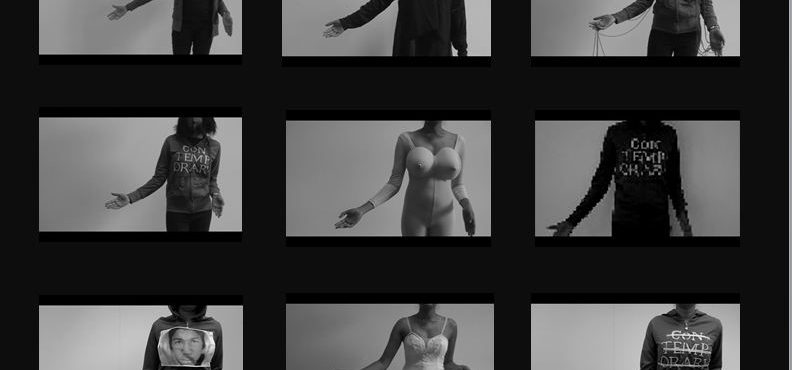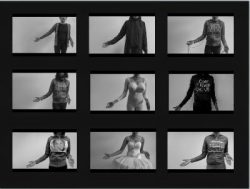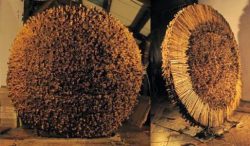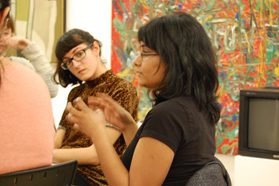- Venue
Stuart Hall Library
-
Time
6:30pm
-
Admission
Free (booking recommended)

Monnoir, c.2007, Nirmal Hurry
AUDIO RECORDINGS are available at the bottom of the page
Please book your place online The event is free but we would be grateful if you could let us know if you book and then cannot attend.
Sharlene Khan is a South African visual artist currently engaged in a practice-based PhD in Arts at Goldsmiths, University of London. Sharlene will present on her art practice.
My work over the last four years maps practices of ‘postcolonial masquerading’ in the South African visual arts. I’ve been experimenting in performative video works with the idea of masking and masquerading as decolonising tools to explore the disruptive and menacing elements of repetition, mimicry, mockery and ambivalence while grappling with ways self-empowerment and subjectivity can employ rage and negativity. Three bodies of work will exemplify these investigations.
I Make Art series restages and spoofs John Baldessari’s iconic I am Making Art video. Nervous Conditions presents the racialised disembodied subject invoked by Frantz Fanon and actively employs the angry black woman stereotype to present the voice of a postcolonial subject, whereas the work No Place (Like Home), restages the 1939 film The Wizard of Oz as a personal history of the South African historical condition and the rupture of the early 90s end of apartheid narrative.
The above-mentioned artworks can be viewed on Sharlene Khan’s website.
Gitanjali Pyndiah is studying for a PhD in Cultural Studies at Goldsmiths, University of London. Gitanjali will present on the concept of Memoriography
When did historiography become nomological? How does a certain perspective of appropriating a collective history become imposed as the truth? I explore the concepts of the archive as initially nomological and topological to the archive of the future which we are witnessing in our digitized lives. My research on memoriography was triggered by the installations and poetic pieces of Nirmal Hurry, a sculptor with a political art practice who deconstructs politics of multiculturalism and opens up a dialogue with the linearity of post colonial historiography. Through the works of Hurry I wish to present the dynamism and cathartic elements of memoriography in contrast with institutional historiography. I am interested in how literary works and artworks have the potential of creating and engaging with non archival memories: Memory, not as retrospection (which reveals how our identities are determined by past experience), but as prospection as a determiner of future action. I also discuss the authority of the supposedly ‘neutrality’ of historians narratives which like Irigaray states, ‘to speak is not neutral’. Hurry’s work is the catalyst to this dynamic memoriography and I will present his pieces in line with the theories that I am exploring in my research.
Gitanjali’s blog & review for Nirmal Hurry’s catalogue.




